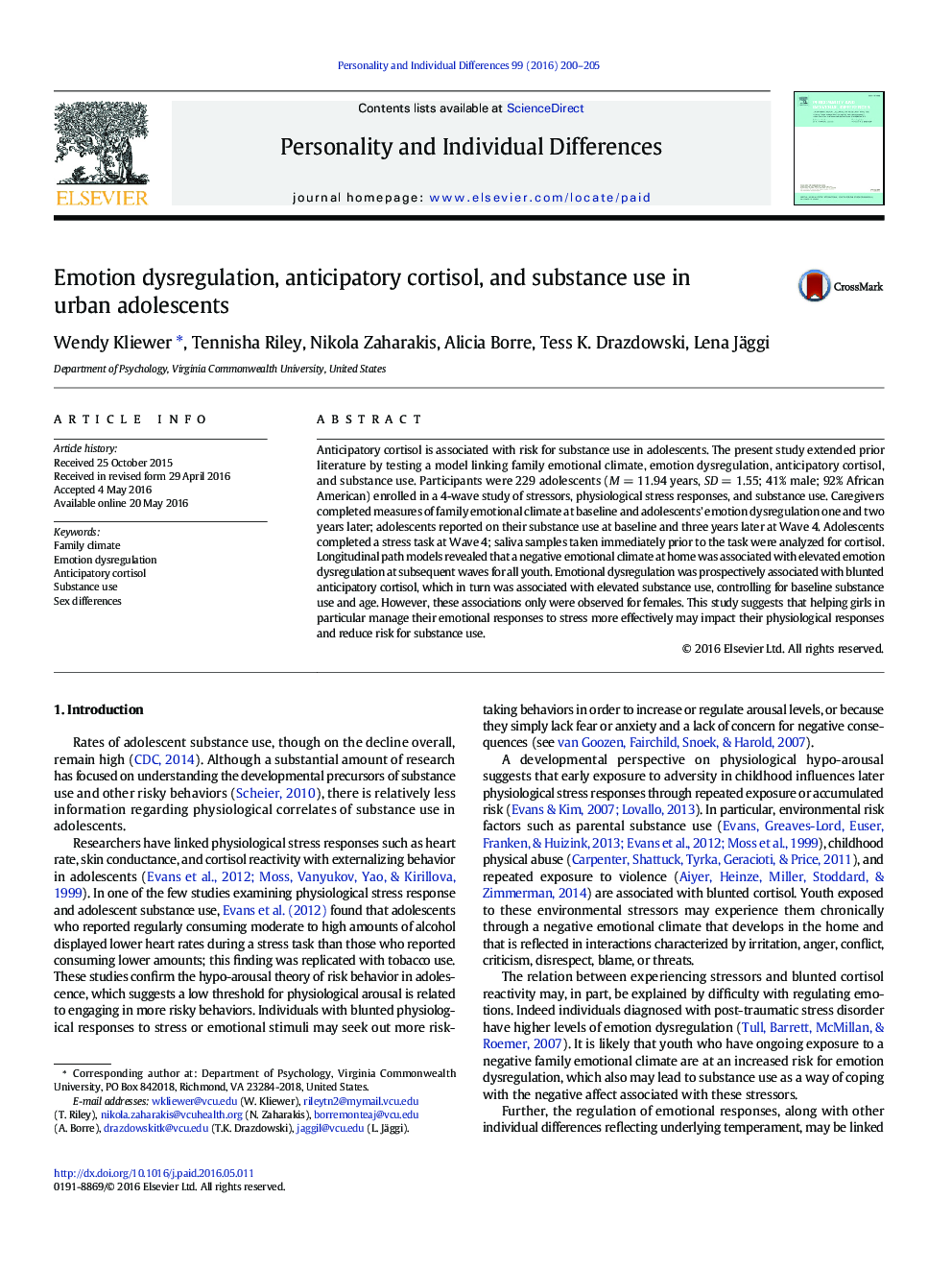| Article ID | Journal | Published Year | Pages | File Type |
|---|---|---|---|---|
| 889721 | Personality and Individual Differences | 2016 | 6 Pages |
•Negative emotional climate was prospectively associated with dysregulated emotion.•Dysregulated emotion was associated with lower anticipatory cortisol in females.•Lower anticipatory cortisol was associated with increased substance use in females.
Anticipatory cortisol is associated with risk for substance use in adolescents. The present study extended prior literature by testing a model linking family emotional climate, emotion dysregulation, anticipatory cortisol, and substance use. Participants were 229 adolescents (M = 11.94 years, SD = 1.55; 41% male; 92% African American) enrolled in a 4-wave study of stressors, physiological stress responses, and substance use. Caregivers completed measures of family emotional climate at baseline and adolescents' emotion dysregulation one and two years later; adolescents reported on their substance use at baseline and three years later at Wave 4. Adolescents completed a stress task at Wave 4; saliva samples taken immediately prior to the task were analyzed for cortisol. Longitudinal path models revealed that a negative emotional climate at home was associated with elevated emotion dysregulation at subsequent waves for all youth. Emotional dysregulation was prospectively associated with blunted anticipatory cortisol, which in turn was associated with elevated substance use, controlling for baseline substance use and age. However, these associations only were observed for females. This study suggests that helping girls in particular manage their emotional responses to stress more effectively may impact their physiological responses and reduce risk for substance use.
